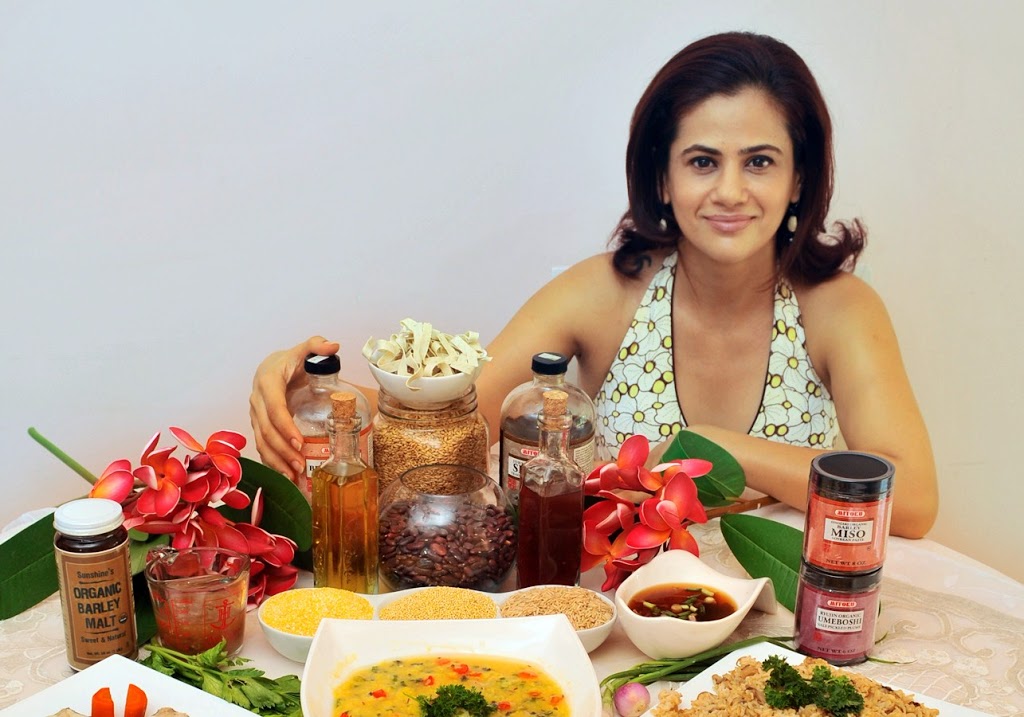An Interview with Dr. Sunil Srivastava, Vegan Veterinarian
The rehabilitation of animals resulting in the domestication of the likes of dogs and cats present thought-provoking scenarios in the vegan mind. ‘Is it ethical to feed my dog or cat non vegan food?’, ‘Is it against Nature to feed my dog or cat vegan food?’, ‘Can my dog or cat live healthy as a vegan?’ are some of the key questions in the consciousness of many vegans who actively contribute towards the rescue and rehabilitation of these animals within human homes. More often than not, an opinion of an expert in the field greatly helps. And, what can be better if the expert is a vegan!
Amruta Ubale, an animal rights activist and a vegan from Pune has done the remarkable job of connecting animal rescuers and people in general having animal companions to such an expert by introducing the page, Vet for Your Pet in her blog, Animal Rights India. The “vet” in question here is an accomplished Delhi-based veterinarian and a vegan of three years, Dr. Sunil Srivastava. Through the Vet for Your Pet page, Dr. Srivastava addresses the health concerns of your animal companions. Impressed by this initiative, we sought to interview Dr. Srivastava to learn more about his service to the animal world. But before you read the interview, here is a short biography of Dr. Srivastava:
Dr. Srivastava is a practicing veterinarian since 1984. In addition to allopathy, Dr. Srivastava has over 15 years of experience in alternative medicine such as homeopathy, ayurveda, Reiki, and naturopathy. Dr. Srivastava chooses to treat acute, emergency cases with allopathy and chronic cases with alternative medicines. However, Dr. Srivastava believes that the main ingredient to cure or keep an animal companion healthy is love and understanding. Dr. Srivastava’s belief stems from the fact that he is an ardent animal lover and very passionate about animal rights issues as well. For the full biography of Dr. Srivastava, you can click this page on the Animal Rights India blog.
 |
| Dr. Sunil Srivastava with a rescued snake that was later released in the wild |
Dr. Srivastava: My ongoing discussions with Amruta Ubale, an animal rights activist, made me aware of veganism. I realized that by eliminating the use of animal products we could significantly reduce the suffering of animals. I was aware of the various cruelties inflicted on animals but I had never seen them from the perspective that by using animal products we are actually contributing towards animal torture.
So, one day we were discussing the dairy issue and it dawned upon me that I should quit milk products. That moment my entire world changed. Now it has been three years since I turned vegan. I realized that animal products are not limited to dairy products and to be vegan does not mean to quit dairy products only.
I see the benefits of veganism in two ways, emotional and physical. Emotionally, I feel happy that I am not consuming a product that was procured by causing pain or death of another living being. Physically, I am sure that I have avoided the chances of diseases, which may be caused by egg or honey or meat or dairy products. Though I have not got any tests done to see the differences in my pathological values pre and post vegan, yet I feel more agile, my stamina has gone up and yes, now I am little less aggressive and temperamental.
Vegan India!: Which animals do you treat? Could you please share whether there has been any difference in the way you treat animals post turning vegan, if yes, what has been the difference?
Dr. Srivastava: My aim is to reduce the suffering of these speechless yet wonderful friends who might I add are very expressive with their affection and emotions. Big, small, bird, animal, mammal, reptile, rodent, and amphibian etc. are words irrelevant for me. At the same time, I admit that I have always been away from people who deal in commercial activities of animals such as dairy owners, farm owners, breeders, or pet shop owners. Frankly speaking, I have not noticed my ways post turning vegan from this angle.
Dr. Srivastava: With the passage of time, dogs have adjusted to a plant-based diet. I personally feel an adult dog does not need milk. Dogs can stay healthy if they are given wholesome vegan food and if need be, mineral and vitamin supplements may be given additionally. But puppies need milk. Cats on the other hand are obligate carnivores. Cats require taurine, an essential amino acid found in meat for the normal functioning of the eyes, brain, heart, and muscles. Unlike other mammals, their body is not capable of synthesizing their own taurine from other building block amino acids. Therefore, they have to rely on external sources. There are vegan taurine supplements available in the market. I am yet to study the effects of this supplement.
Vegan India!: What are the primary nutritional needs of dogs and cats? What are the essential plant-based food items we must include in their diet to fulfill those nutritional needs? Do vegan animals need to take medicinal supplements or is a well-planned vegan diet enough?
Dr. Srivastava: Protein, carbohydrate, fat, and minerals including trace elements and vitamins are the basic needs of domesticated dogs and cats. Rice, wheat, pulses, beans, millets, greens, other colored leafy vegetables and fruits, and cooked or raw coconut, sesame, groundnut, or olive oil (I prefer coconut) makes a good palatable diet. Soya bean, garlic, onion, tomato, kidney beans, spinach, and potato should not be given on regular basis. The food should not be over cooked and vegetables should not be fed raw. Fruits such as apple should be grated. Supplements are essential for vegan as well as non vegan dogs if the diet is not wholesome, which is the case with many.
Dr. Srivastava: The animal product intake from the diet should be gradually reduced. Make sure wholesome vegan meals are provided to companion animals. Keep an eye on the health of the companion animal. With that being said, I must add I am not in favor of making companion animals suffer from health complications due to eating habits. The companion human should try to reduce the dependence on animal products keeping the health of the animal in mind.
The opinions given in this interview are my personal views and in no way are they intended to hurt any body’s feelings and emotions. Food allergies are not very common in animals but they are existent. So, the owner should be vigilant. I have always been against commercial pet foods. That is why I always advise people to provide homemade food – because its purity and freshness is guaranteed by none other than owners themselves.
Note: If you have a question for Dr. Srivastava concerning the welfare of your companion animal, you can send them at [email protected] or pull up a comment box at the Vet For Your Pet page and type in your question.



Pleasure to read this interview..Thanks
Will appreciate to know which supplement can be added to dogs & cats homemade diet as suggested above to ensure it nutritionally complete
Thank you for stopping by and for your very good question. Actually, supplements are not required until there is an identified deficiency. The whole diet as suggested by Dr Srivastava is good enough, as a well a balanced diet for dogs. If there’s a deficiency, then vets can recommend the necessary supplements. Cats, however are obligate carnivores, therefore must be fed taurine as a supplement or via cat food. Hope this helps.
It is heartening to know that we have amidst us a vegan Vet too. I have heard and read that Veterinary medical courses are designed only to help human beings keep the animals healthy so that they are fit for consumption. That being the case, veterinary education has no place for compassion or love for animals. In fact veterinary students are asked to cook non- vegetarian food, visit slaughter houses etc.
Thus it makes a great difference when a Vet turns vegan. That can make a lot of difference to the animal world which is in dire need of understanding from human beings. A Vet can understand the animal needs, physical suffering and emotional trauma like no one else.
Dr. Sunil Srivastava is a rare example of a Vet who cares for the animals in the true sense of the term. I have had a Vet as a friend long back but did not find him being very kind to animals although he himself was a strict vegetarian. He once scared a noble homely lady (a vegetarian) out of her wits by suggesting to her that she start a poultry farm!!
Having a vegan Vet amongst us is indeed a blessing to many vegans who have pets and would like to keep them vegan as well. In this interview Dr. Sunil Srivatsava has clearly explained what is possible and what is not possible when having pets. That will help vegans develop the right strategy for maintaining their vegan pets in good health.
Thanks again, Vegan India, for this unique and useful interview.
Thank you, John and Arun for your comments.
Arun, wonderful, please do invite the vegan veterinary doctor in your contact if he/she is willing, to share thoughts in this space to enrich the information base from experts in the field. Again, if your contact is willing, please feel free to share contact details on this space for people to benefit from.
And, it is undoubtedly the "vegan" perspective that changes how we look at things, it is like appearing on the scene with a fully functional conscience!
Thank you vegan india for the interview. It is good to know about Dr. Srivatsava! I came to know from another vegan veterinary doctor that veterinary science is all about learning to exploit animals worse. Reading this is a small consolation.
This blog is a great source of information which is very useful for me.
BEST INFORMATION ABOUT VEGAN DIET..